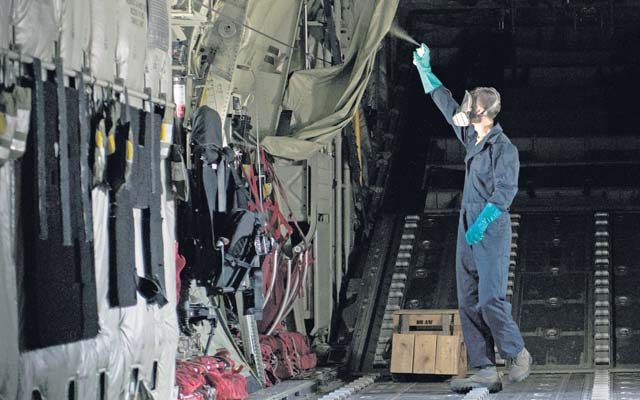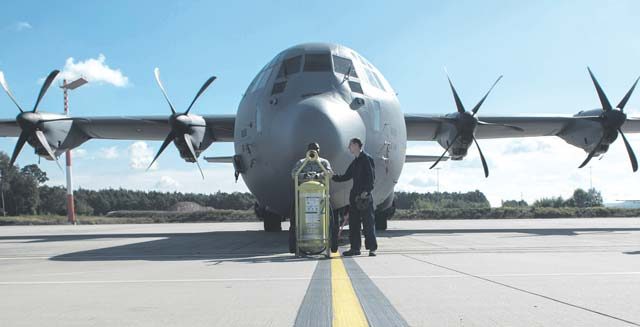
With new outbreaks occurring in the U.S., many Airmen may wonder what is being done to prevent the spread of the Zika virus overseas while they are stationed here. The virus is spread through birth, sexual activity or being bit by an infected Aedes mosquito.
The 786th Civil Engineer Squadron Pest Management office plays a part in stopping the virus. They do so by spraying repellent on aircraft that are traveling to any of 28 countries where the virus is known to be.
“It’s very effective,” said Staff. Sgt. Antonio Gross, 786th CES pest management specialist. “The residue we leave kills an array of flying insects, so when the mosquito lands on that particular chemical, it dies. I think it’s necessary to take out one of the ways it can be transmitted, and we’re doing a pretty good job of killing the host of the virus.”
According to the Centers for Disease Control and Prevention, the most common signs of a Zika infection are fever, rash, joint pain or conjunctivitis but can also include headaches or muscle pain. An infection during pregnancy is linked to microcephaly and other birth defects. The CDC is currently reporting there is no vaccine available or a cure for the virus.
The repellent is an important step in keeping the virus contained, as it would be difficult to prevent infected mosquitos from entering a plane.
“Planes coming from Africa are high threats, as it’s where the main source of the virus originates,” said Airman 1st Class Christopher Jones, 786th CES pest management specialist. “We are doing something to help our members wherever they go to abate the issue.”
The pest management office not only sprays Ramstein aircraft but all aircraft in U.S. Air Forces in Europe.
“When we first started this, some planes had to change their mission,” Gross said. “Planes from other countries or areas have to come here to get sprayed because we are the only one in USAFE with the material to do it.”
The mission will always continue, and it is through the work of 786th CES pest management Airmen that it moves forward while keeping Airmen safe.
“These planes fly all over, so if we didn’t do what we do, they couldn’t do what they do,” Jones said. “We are putting up a protective barrier and keeping it up so the mosquitos have a hard time establishing themselves.”
For more information about the Zika virus, visit www.health.mil/Military-Health-Topics/Health-Readiness/Mosquito-Borne-Illnesses/Zika-Virus.



